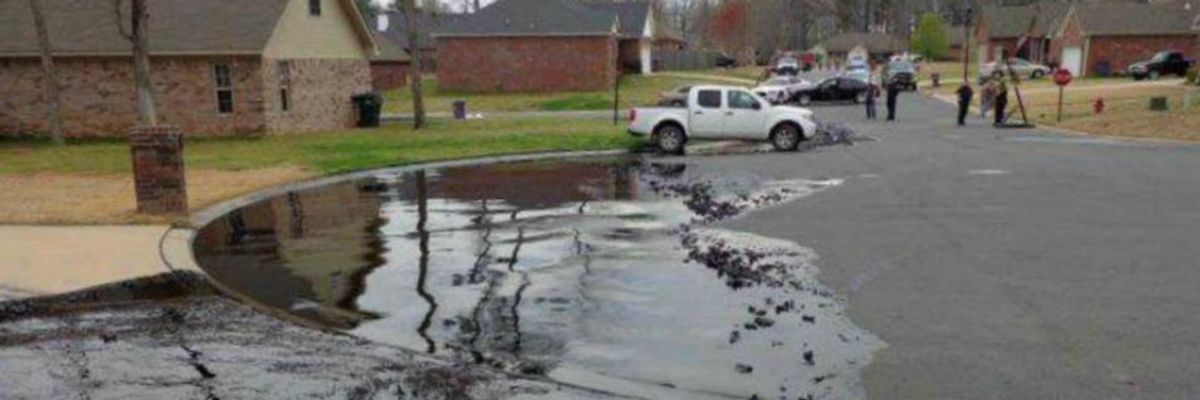Two years after a ruptured pipeline poured 134,000 gallons of tar sands oil into the suburban streets of Mayflower, Arkansas, creating a toxic mess that devastated both the community and the environment, ExxonMobil has been ordered to pay a $5 million fine for its role in the disaster, the state announced on Wednesday.
According to Arkansas Attorney General Leslie Rutledge and Arkansas Department of Environmental Quality (ADEQ) Director Becky Keogh, a "consent decree" (pdf) has been reached in the suit over the March 29, 2013 rupture, in which the state charged that the oil giant had violated the Clean Water Act as well as state laws pertaining to the storage of hazardous waste during the cleanup of the massive spill.
"ExxonMobil will pay $1 million in State civil penalties, $600,000 toward water quality-based Supplemental Environmental Projects and $280,000 to the Attorney General's Office for litigation costs. ExxonMobil will also pay $3.19 million in federal civil penalties and perform measures to improve pipeline safety and spill response," reads the statement from the Attorney General's office.
As Mollie Matteson, senior scientist with the Center for Biological Diversity, told Common Dreams, "When you look at the fine and consider that Exxon makes a profit of close to $9 million every day, this fine is about half a day's worth of profits.
"I think the real question here," Matteson continued, "is this fine sufficient to actually change Exxon's behavior or any oil company's behavior? And I think the answer is a pretty strong 'no.' Half a day's profit lost is not going to be anything but a blip on their operations."
Further, should Exxon chose to restart the pipeline which has laid dormant since the spill, it is required to pursue additional safety measures as well as improve its spill response capabilities.
In addition to its use of aging and unfit pipelines to transport the tar sands oil, Exxon was widely blamed for a slow and unfit response and for failing to communicate the extent of the spill--going so far as to institute a no-fly zone disallowing journalists and others to investigate the matter.
Following the spill, Mayflower residents were forced to evacuate and for months complained of smelling fumes as well as other negative health effects. The nearly 5,000 barrels of tar sands oil contaminated a local watershed, leaking an untold number of chemicals into the water supply.

